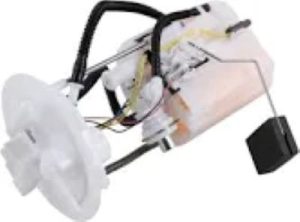Advanced engineering and technology are done, while the particular high-performance engine puts performance demands on it. Fuel pumps in modern vehicles-primarily with turbochargers or superchargers-must be able to provide much higher flow rates and consistent pressures to deliver increased power. Most of the fuel performance pumps are rated for more than 255 liters per hour (LPH), while the standard ones usually perform at an average flow rate of 90-130 LPH. This excess capacity serves to provide adequate fuel to the engine when rapid accelerations or high revolutions per minute occur, thereby averting fuel-starved conditions that could hamper performance.
These performance demands are tamed by variable-speed technologies that many fuel pumps have onboard. This allows them to adjust their output according to real-time engine requirements, thereby optimizing fuel delivery and efficiency. For example, a variable-speed fuel pump would work at reduced flow rates during low-load conditions, thereby salvaging economy by saving on superfluous fuel consumption. At low-load conditions, the pump ramps down to give the required fuel flow, ensuring that in all instances the best engine performance is achieved.

Durability also plays another imperative variable in how fuel pumps handle performance-related requirements. Performance pumps are often made from high-quality materials such as stainless steel and advanced polymers, hence their ability to successfully resist increased pressure and temperature emanating from high-performance engines. Most performance fuel pumps are constructed in such a way that they are able to support operation pressures up to 100 psi or more, with most conventional pumps operating within the pressure range of 30-80 psi. In turn, this resilience aids in avoiding any sort of pump failure that can result in costly engine damage.
The performance fuel pump also requires proper installation and integration with the management system of the engine. Most high-performance applications require some form of ECU recalibration, especially where the new fuel pump is able to handle higher flow and pressure. This ensures that proper air-fuel mixture is maintained for power delivery and efficiency. Poor integration of the fuel pump results in lean conditions, misfire, and diminished performance.
As Henry Ford, one of the great innovators in the history of the automobile, once said, "Quality means doing it right when no one is looking." Only a reliable Fuel Pump can ensure that the performance demands are met to create high levels of efficiency and power. For high-performance fuel pumps and related products, visit Fuel Pump.